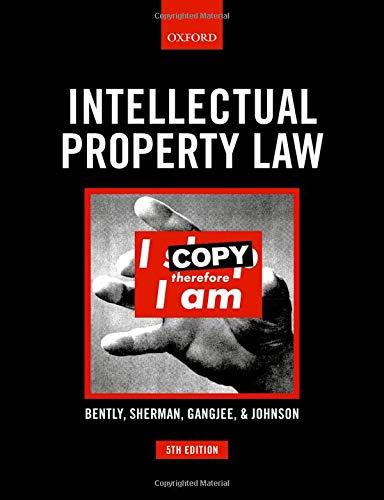Question
Question Case study Shell versus Ken Saro-Wiwa in Nigeria - From Ogoniland to Agonyland Ken Saro-Wiwa was a Nigerian author, who led a movement to
Question
Case study
Shell versus Ken Saro-Wiwa in Nigeria - From Ogoniland to Agonyland
Ken Saro-Wiwa was a Nigerian author, who led a movement to save the River Niger Delta, where the Ogoni people live. The region is also known as Ogoniland. The Royal Dutch Shell plc was causing environmental destruction due to its extensive oil drilling and mindless spread f effluents and toxins, both on the land and in water. Shell has been extracting oil from the delta region since 1958. It ran its business unhindered, by suppressing the public complaints about environment damage through its very cosy relationship with the ruling military regime of Abacha. With so much oil available, any other country would have an economic boom like the Middle Eastern oil producing countries; but Shell and the Nigerian government succeeded in reducing 70 per cent of Nigeria's population to live in abject poverty, on less than a dollar a day. Oil spills, gas fares, effluents, and toxins have destroyed farming, fishing, and drinking water sources, and caused widespread deforestation and soil contamination, rendering the Ogoni people to indescribable poverty and agony.
The Movement for the Survival of the Ogoni People (MOSOP) was founded in 1990. Within a couple of years, a majority of the Ogoni people started supporting the movement that was committed to a non-violent struggle. Ken Saro-Wiwa, the founder of the movement, through charismatic leadership and writing, attracted the world's attention to the suffering of the Ogoni people. Shell did not want to lose easy business and the military ruler did not want to lose power. So they banded together against Saro-Wiwa and his movement. There was open violence against the farmers, who were shot dead in their farms, or arrested, tortured, and the jailed. The women were raped, and terror was unleashed by the military ruler, through his soldiers and the support of Shell.
Saro-Wiwa and his colleagues were arrested and beaten up several times. The more they were tortured, the more the world came to know about it. Shell would call upon the Nigerian police whenever they needed to encroach upon the farming land or forests to sink oil rigs or when the activists opposed the company's work. They called these security operations. Shell wanted an end solution to their problems. Saro-Wiwa was their biggest hurdle. It developed a strategy, which the Nigerian government willingly followed. Saro-Wiwa, along with eight more of his colleagues, was arrested on the charges of killing four Ogoni leaders. The false witnesses that were collected recanted. But the summary trial proceeded. Shell's lawyer was granted the privilege by the Nigerian government, to watch the trial. The director of Shell's subsidiary gave Saro-Wiwa's younger brother the option to arrange for amnesty of his brother and his friends, if they categorically gave up their movement. He refused.
The especially instituted tribunal declared Saro-Wiwa and his eight colleagues guilty. Saro-Wiwa made the following statement before the tribunal, ' I repeat that we all stand before history. I and my colleagues are not the only ones on trial. Shell is here on trial and it is as well that it is represented by a counsel said to be holding a watching brief. The Company has, indeed, ducked this particular trial, but its day will surely come and the lessons learnt here may prove useful to it for there is no doubt in my mind that the ecological war that the Company has waged in the Delta will be called to question sooner than later and the crimes of that war be duly punished. The crime of the Company's dirty wars against the Ogoni people will also be punished.
'In my innocence of the false charges I face here, in my utter conviction, I call upon Ogoni people, the peoples of the Niger delta, and the oppressed ethnic minorities of Nigeria to stand up now and fight fearlessly and peacefully for their rights. History is on their side. God is on their side. For the Holy Quran says in Sura 42, verse 41: "All those that fight when oppressed incur no guilt, but Allah shall punish the oppressor. Come the day."
Saro-Wiwa and his eight colleagues were hanged. It is said that Saro-Wiwa was hanged last because he was forced to see the execution of his eight colleagues. It isalso said that they has to take a couple of takes to hang him. These were his last words, 'Lord take my soul, but the struggle continues.' Ken Saro-Wiwa (10 October 1941-10 November 1995).
There are several cases filed against Shell by human rights organisations around the world. The most significant ones are the cases in the US Supreme Court, by the Centre for Constitutional Rights and Earth Rights International, charging Shell of human rights violations in Nigeria, summary executions, crimes against humanity, torture, inhuman treatment, and arbitrary arrest and detention.
Based on the case above, your report should include: -
1. Explain ANY FIVE (5) relevant ethical issues based on the Shell versus Ken Saro-Wiwa case in Nigeria.
2. Evaluate how "ethical" are the business practices and support your justification by applying ANY FIVE (5) relevant ethical theories.
3. Saro-Wiwa and his colleague's protest might be successful if they manage to secure support from non-government organisations (NGO's). Critically discuss and recommend ANY FIVE (5) role of related international NGOs that could have helped them resolve the ethical issues of Shell in Nigeria.
Step by Step Solution
There are 3 Steps involved in it
Step: 1

Get Instant Access to Expert-Tailored Solutions
See step-by-step solutions with expert insights and AI powered tools for academic success
Step: 2

Step: 3

Ace Your Homework with AI
Get the answers you need in no time with our AI-driven, step-by-step assistance
Get Started


